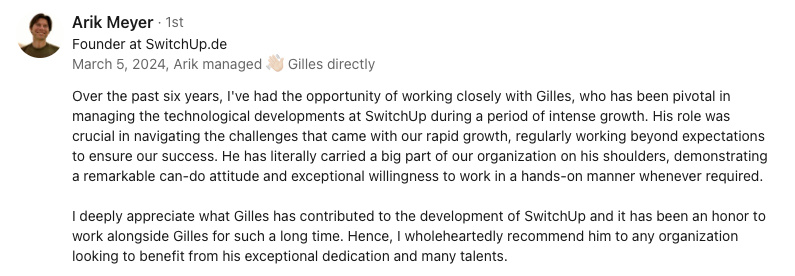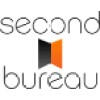Abstract:
This article explores how diversity, equity, and inclusion (DEI) initiatives are fundamentally transforming workplace cultures and shaping the future of work. By prioritizing a more diverse workforce, companies not only foster a more creative and innovative environment but also mirror the societies they serve, leading to improved customer insights and satisfaction. Equity ensures that all employees have access to the same opportunities, which is crucial for retaining talent and maximizing employee potential. Inclusion practices create a sense of belonging, boosting employee engagement and productivity. Together, DEI initiatives are not just moral imperatives but strategic business practices that drive growth, adaptability, and resilience in the face of changing market demands. Emphasizing real-world examples and emerging trends, the article underscores the importance of DEI in creating competitive, forward-thinking companies equipped to navigate the challenges of the future workplace.
Understanding the growing importance of DEI in the workplace
It's becoming increasingly clear that Diversity, Equity, and Inclusion (DEI) are essential components in shaping vibrant and progressive workplaces. More than just a moral obligation, DEI initiatives are proving to be pivotal in driving sustainable growth and fostering a culture where every employee feels valued and empowered. This shift indicates a broader recognition that embracing DEI is fundamental in building an inclusive culture.
By embedding DEI into the fabric of an organization, it's possible to unlock unprecedented levels of creativity and innovation. A diverse workforce brings a variety of perspectives and experiences, which can lead to groundbreaking ideas and solutions. Equity ensures that all employees have access to the same opportunities, fostering a sense of fairness and belonging. When individuals feel their contributions are recognized and valued, it boosts morality and enhances engagement.
Inclusion is about creating environments where everyone feels they belong. It's not just about bringing different people together but ensuring they are integrated seamlessly into the team. When employees feel included, their productivity soars, as they are more likely to invest their full capabilities into their work. This inclusive culture nurtures collaboration and drives overall productivity.
Moreover, in an increasingly competitive market, organizations that champion DEI are better positioned to attract top talent and retain their workforce. High-performing individuals seek employers who demonstrate a commitment to inclusive practices. By emphasizing DEI, companies can also tap into new market segments, reflecting the diversity of their customer base and staying competitive.
The importance of DEI in today's workplace can't be overstated. It's a transformative force that not only enriches the workplace experience for employees but also significantly contributes to the organization's success. This focus on DEI is setting the stage for a more dynamic and inclusive future, one that benefits everyone involved.
The role of diversity in fostering creativity and innovation
When we talk about diversity in the workplace, we're not just discussing the variety in race, gender, or age—it's about a rich spectrum of thoughts and ideas. Having a diverse team means bringing together individuals with different experiences and viewpoints, which is a breeding ground for creativity and innovation. A mix of perspectives is likely to generate unique solutions to complex problems.
Consider this: when people from different backgrounds collaborate, they approach challenges from various angles, often leading to out-of-the-box thinking. This can dramatically improve the quality of brainstorming sessions, making them more productive and full of original ideas. Diversity acts like a wellspring of innovation, propelling business strategies and creative endeavors to new heights.
One tangible benefit is the enhanced ability to understand and serve a diverse customer base. When your team mirrors the diversity of your market, you're more likely to empathize with customer needs and preferences. This leads to better products and services tailored to various demographics, ultimately improving customer satisfaction. By catering to different segments effectively, companies can expand their reach and solidify their market position.
Take, for instance, the tech giant Google. They have long recognized the value of fostering a diverse and inclusive environment. By hiring people from various backgrounds, Google has been able to develop innovative products like Google Assistant, which better understands and interacts with people from different cultures and languages. This ability to resonate with a global audience gives them a significant competitive advantage.
Another example is consumer goods company Procter & Gamble. Through their commitment to diversity, they have developed marketing campaigns that resonate deeply with a wide array of consumers. Campaigns like "Like a Girl" not only gained widespread acclaim but also highlighted P&G's understanding of social nuances and customer sentiments, driving both brand loyalty and sales.
In my experience, fostering a diverse workplace is indispensable for sparking creativity and driving innovation. The diverse mix of minds and experiences helps create an environment where thinking differently is not just encouraged but is the norm. This fusion of ideas breathes life into the organization and, more importantly, positions it to navigate and excel in an ever-changing marketplace.
Equity in providing equal opportunities and its impact on talent retention
Equity in the workplace is about guaranteeing that every employee has access to the same opportunities, resources, and fair treatment. This idea goes beyond simply hiring a variety of talents—it involves actively creating an environment where all individuals, regardless of their background, can thrive. It's a critical factor in retaining top talent, as it ensures that everyone feels valued and has equal chances to succeed.
Establishing equitable practices in the workplace can be transformative. For one, it significantly boosts morale among employees. When individuals believe they have a fair shot at advancement and rewards, they're more motivated to put forth their best efforts. This heightened motivation not only enhances individual performance but also cultivates a more productive and positive workplace atmosphere.
One of the key ways to foster equity is through transparent and unbiased decision-making processes. For example, implementing clear criteria for promotions and raises can prevent favoritism and ensure that these opportunities are distributed based on merit rather than background. This kind of transparency builds trust within the team and reinforces the idea that hard work and talent will be recognized and rewarded.
Another effective strategy is offering mentorship and sponsorship programs. Mentorship programs pair less experienced employees with seasoned professionals who can provide guidance, support, and advocacy. Sponsorship programs go a step further by actively promoting proteges for promotions and key projects. These initiatives are particularly valuable for underrepresented groups, helping to level the playing field and promote diverse leadership pipelines.
Consider how some leading organizations have successfully implemented equitable practices. Take Salesforce, for example. They regularly conduct equity audits to identify and address pay disparities based on gender and race. By rectifying these imbalances, Salesforce not only commits to fairness but also gains the loyalty of its workforce. This proactive approach sends a strong message that the company is not just paying lip service to DEI principles, but is genuinely invested in them.
Similarly, IBM has made strides in promoting equity through its Pathways in Technology Early College High Schools (P-TECH) initiative, which offers students in underserved communities access to education and career opportunities in tech. By investing in these students early on, IBM is not only broadening its talent pool but also fostering long-term loyalty among those who benefit from the program.
In my experience, when equity is embedded in the culture of an organization, it has a profound impact on retaining talent. Employees are more likely to stay with a company where they see a viable path to career advancement and feel their contributions are valued equally. This sense of fairness instills a deeper commitment and drives loyalty, which is invaluable in today’s competitive job market. Embracing equity helps create a workplace where everyone can reach their fullest potential, and this, in turn, ensures that the organization thrives.
Inclusion practices and their effect on employee engagement and productivity
In the tech industry, inclusion is a powerful force that can transform ordinary workplaces into thriving environments where every employee feels they belong. It's not just about having different people in the room; it's about creating a culture where everyone feels valued and heard. When employees feel included, their engagement levels soar, leading to heightened productivity and overall job satisfaction.
One fundamental strategy for fostering inclusion is the implementation of employee resource groups (ERGs). These groups, often built around shared characteristics or experiences such as gender, race, or sexual orientation, provide a supportive space for employees to connect and share their stories. ERGs empower staff by giving them a voice within the organization, which can lead to a stronger sense of belonging and community. For instance, an ERG for women in tech might help address the unique challenges women face in the industry, providing mentorship and networking opportunities that enhance their professional growth.
Inclusive leadership is another crucial element in cultivating an inclusive workplace. Leaders who prioritize inclusion make a concerted effort to understand their team's diverse perspectives and actively involve all members in decision-making processes. This approach not only reinforces the value of individual contributions but also fosters a collaborative atmosphere where innovation can flourish. Inclusive leaders often engage in continuous learning about DEI topics and advocate for equitable policies within the organization.
From personal experience, I've seen the positive impact of fostering inclusion firsthand. One of our software engineers, Maria, shared how joining our company's Latinx ERG helped her feel more connected to her colleagues and the organization as a whole. She noted that participating in the group's activities and discussions gave her a platform to share her unique insights and experiences, which were then taken into account in several project developments. This not only boosted her engagement but also inspired her to take on more challenging tasks, ultimately enhancing her productivity.
Similarly, our internal surveys consistently show that teams with inclusive practices report higher satisfaction levels and are more likely to innovate. Employees appreciate when their unique perspectives are considered, which naturally increases their commitment to the organization’s goals.
Inclusion is not a one-time initiative but an ongoing commitment to creating an environment where everyone feels welcome and valued. By implementing strategies such as ERGs and inclusive leadership, organizations can ensure that every employee is engaged and motivated. The result is a workplace that not only supports individual growth but also drives collective success, ultimately positioning the organization for sustained growth.
The strategic business advantages of DEI in the evolving market landscape
By now, it's evident that integrating Diversity, Equity, and Inclusion (DEI) into business practices is more than just an ethical move—it's a smart business strategy. As Chief Technology Officer, I've seen firsthand how DEI initiatives propel businesses forward, ensuring they remain competitive and resilient in a fluctuating market.
One of the most significant advantages of DEI is its role in driving sustained growth. By leveraging a workforce rich with diverse backgrounds, companies can tap into a broader range of ideas and perspectives, directly fueling innovation. This influx of fresh viewpoints can lead to the development of unique products and services, setting the stage for long-term success.
Moreover, a strong commitment to DEI enhances a company's adaptability. In a market landscape that is continually changing, it's the businesses with diverse teams that excel at navigating these shifts. Diverse teams are more agile, quickly adjusting to new trends and challenges. This flexibility is a crucial asset, allowing organizations to stay ahead of competitors and address market demands effectively.
DEI also contributes to organizational resilience. Companies that prioritize equity and inclusion create a supportive environment where employees feel valued and empowered. This inclusive culture builds a stronger, more cohesive team, capable of weathering industry downturns and other hardships. Employees are more likely to stay loyal and engaged in such settings, reducing turnover rates and preserving invaluable institutional knowledge.
I've personally witnessed how businesses dedicated to DEI are better equipped to tackle the complexities of the modern market. These organizations not only attract top talent but also foster an environment where everyone can thrive. As companies cultivate these inclusive cultures, they position themselves as industry leaders, known for innovation and excellence.
In summary, adopting and expanding DEI efforts isn't merely about compliance or optics; it's about securing a competitive edge. By fostering growth, enhancing adaptability, and boosting resilience, DEI sets the foundation for a robust and forward-thinking future workplace. Encouraging businesses to deepen their commitment to DEI will ensure they remain dynamic, innovative, and successful in this ever-changing market landscape.
You might be interested by these articles:
- Shaping Tomorrow's Work through DEI
- Driving Innovation and Growth: DEI Strategies in European Tech Startups
- Unlocking Innovation: How Europe's Cultural Diversity Fuels Startup Success





